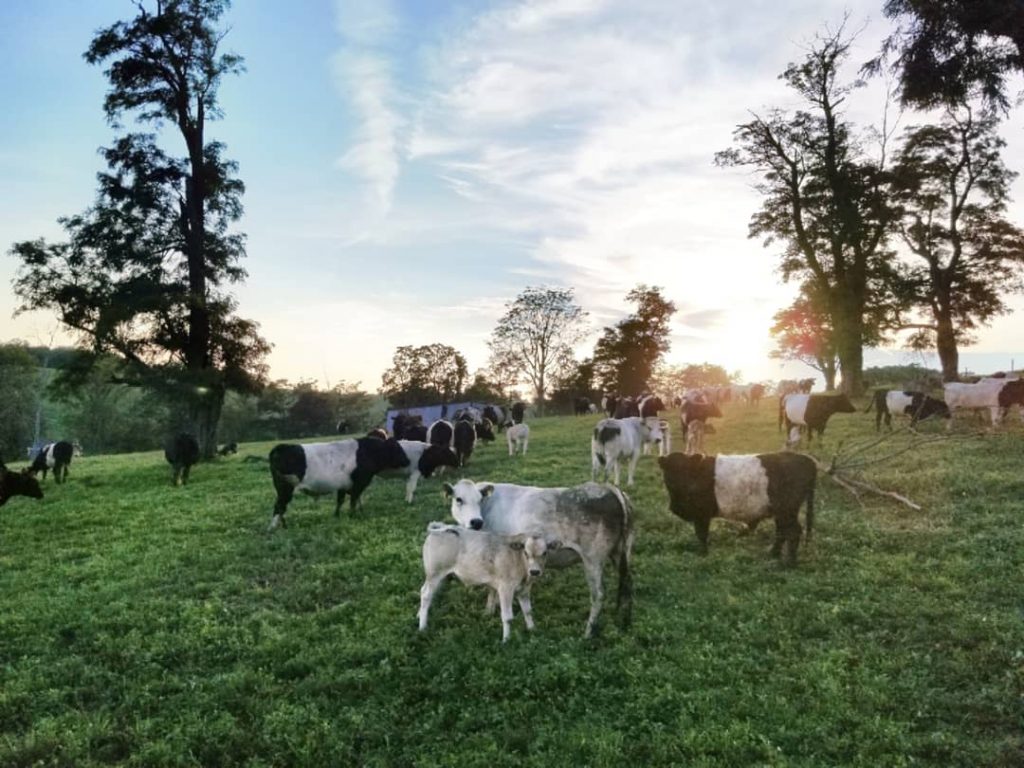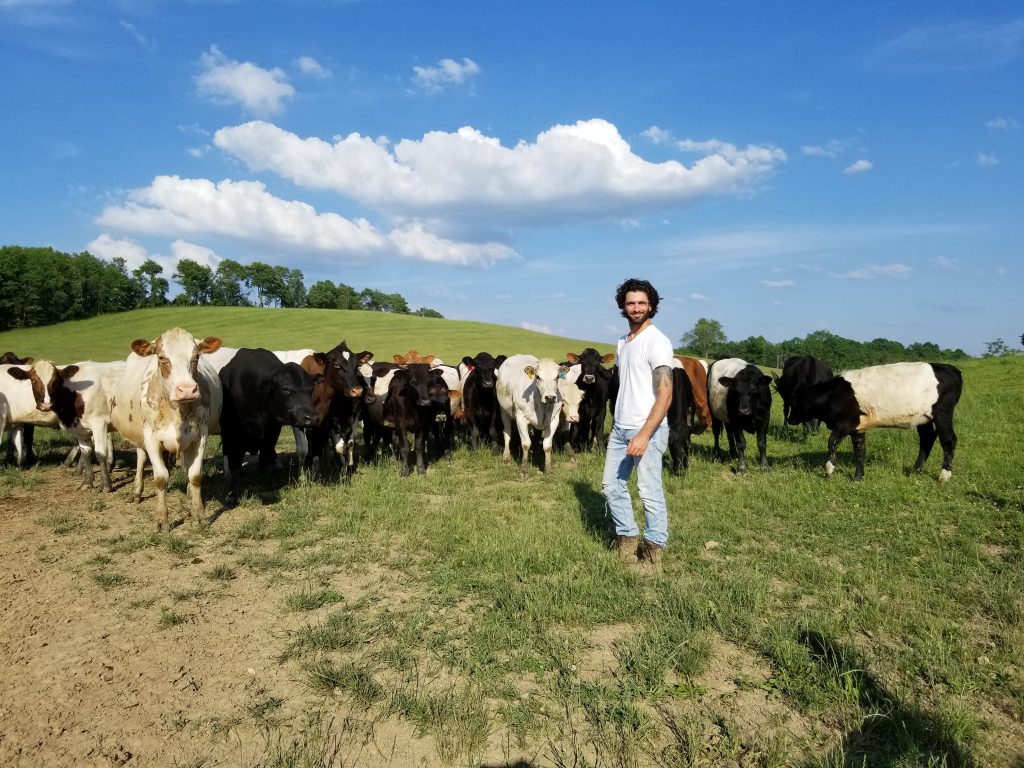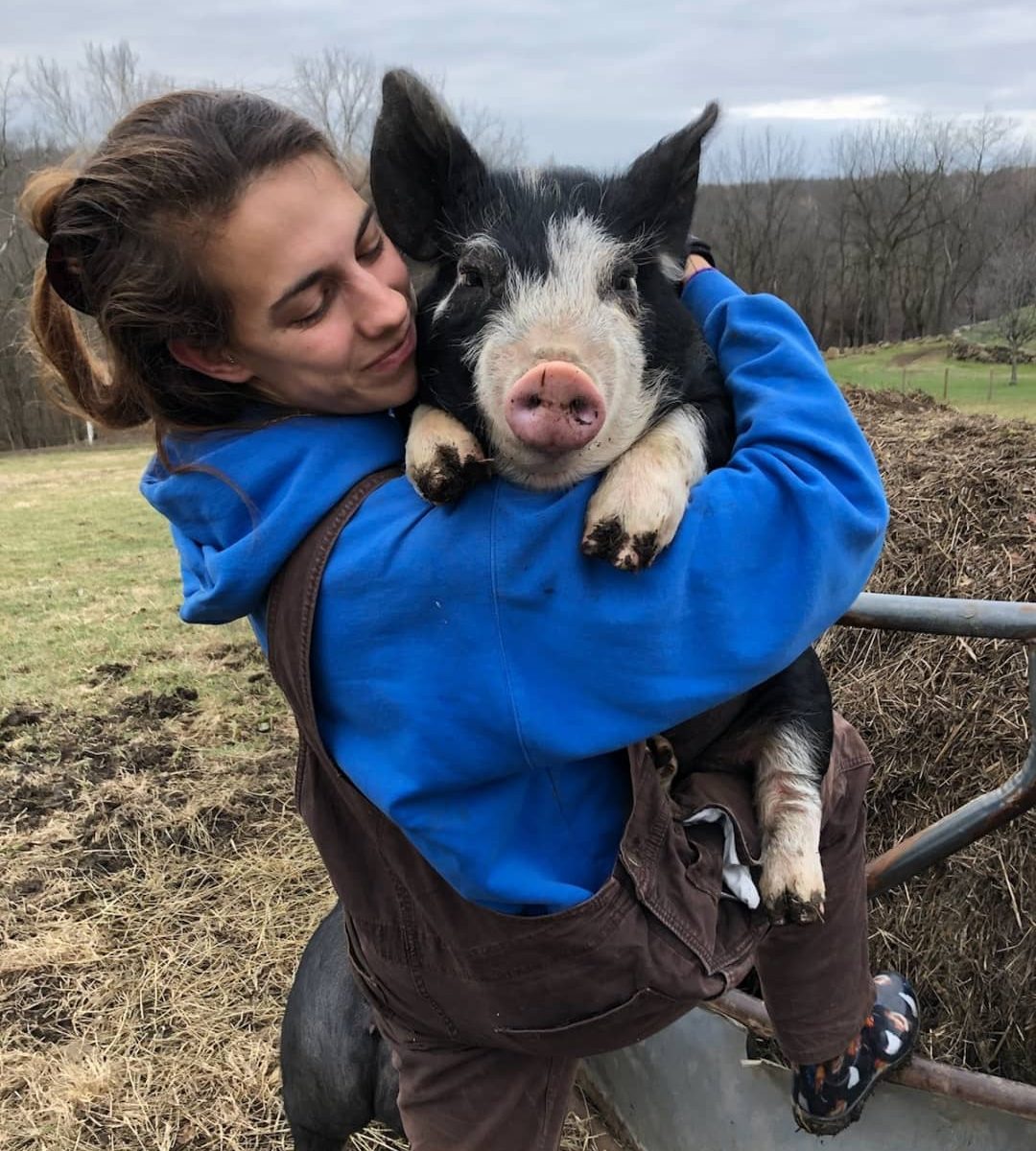Tail to snout. For almost 100 years, that’s been the motto of Birch Creek Farmery, a Burgettstown farm raising premium, heritage meats. Nothing goes to waste — not a gallon of milk, not a minute of time.
Four generations back, Birch Creek Farmery started as a dairy farm. Throughout the years, the family-owned farm had a variety of animals, but today’s story starts when the now 28-year-old Teddi Maslowski, a fourth-generationer who owns the farm, decided to move back.
“I loved agriculture… and digging deeper into commercial agriculture and environmental pressure and animal ethics, it all came together to me wanting to raise meat, even if it was just for the family,” she said.
Birch Creek Farmery has since transformed into a 1400-acre sustainable, heritage meat farm run by Teddi and her family.


Teddi and her family chose to raise heritage animals (which existed before commercial breeds), like Berkshire pigs, Icelandic sheep, and Galloway beef for a few reasons. First is the quality: these breeds, as the family says, “yield meat that is unmatched in culinary quality;” each bite is full-of-flavor and rich in texture, color, and nutritional value.
Their farm has also kept breeds from extinction. At one point, there were less than 100 Mangalista hogs in the world, Teddi said.
And finally: it’s sustainable. By raising their animals in a pasture, Birch Creek uses the pigs to aerate soil, goats and sheep to maintain the land, and cows to decrease parasites on the field. Chickens eat insects and pests, while ducks reduce the fly populations.
Teddi also feeds her pigs produce and grain from local businesses like Soergel’s Orchard and Necromancer Brewing. And, as previously mentioned, they uphold a 100-year farm tradition of tail-to-snout butchering, using every part of the animal.
However, breeding pasture-raised heritage animals doesn’t come without its challenges. The animals require an immense amount of care. Teddi explains that since moving to pasture-raising, they’ve had to create a new farming system, one that isn’t preventative, it’s reactive.
“The Berkshire pigs, for example, they do great outside, and we want them to have the freedom to roam pastures, to help us restore pastures and get them ready for re-feeding,” Teddi explains. “On the flip side… it’s not a temperature-controlled environment. Right now, going from 70 degrees during the day and 20 degrees at night can kick in a lot of disease in pigs.”
A superspreader of disease could wipe out their drove of pigs, so they have to keep a watchful eye on them — along with the rest of their 800 animals.

“To keep your eye on them all, plus check the grass levels, plus check the weather, plus get out there before there’s mud… learning stuff like this, you have to do on the fly. There’s no book for that,” she said.
But, if you can scale the heritage breeds up to production level, higher quality, more nutritious meat becomes accessible to everyone.
Scaling is just what Teddi plans to do. In the next year, Birch Creek is planning to open a USDA-inspected butcher shop, retail store, bakery, and commercial kitchen, so they can have control over every step of their tail-to-snout method, from birth to butcher. Eventually, Teddi hopes to grow the farm to hold 25,000 animals on 1500 to 2000 acres.
“We’ve seen this opportunity to raise animals and produce premium meat with a lot of nutrition and things like that behind it. We can impact commercial meat and make that available to people, keeping our prices affordable,” Teddi said.
“We’re not just trying to make a living off of this. We want people to include this meat in their diets regularly,” she continued.
Harvie has only helped Birch Creek grow, providing a steady stream of consumers. They’re no longer “throwing stuff at the wall to see if it sticks,” Teddi says, but going into the butcher shop with a clear idea of their cuts, knowing that it will sell on Harvie.
A mix of Birch Creek meats are available on Harvie every week. Add a cut or two to your next delivery!

